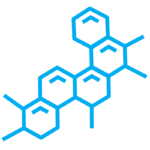Biosimilars 101
Today’s health care arsenal includes biological products, or biologics, that are used in the treatment, prevention or diagnosis of diseases and medical conditions. Unlike most traditional small-molecule prescription drugs that are made through chemical processes, biological products are generally made from human and/or animal materials through complex processes. Thanks to newer types of biologic medicine known as biosimilars and interchangeable biologic products, advanced medicines will become available at a lower cost to millions of patients.
A biosimilar is a biologic medicine that is highly similar to a previously approved reference biologic currently on the market. Biosimilars are developed to provide safe, effective alternative versions of existing biologic medicines (known as “reference products”) with scientifically comparable quality, safety and efficacy. Like a biosimilar, an interchangeable biologic product is highly similar to a Food and Drug Administration (FDA) approved reference product and meets additional standards for interchangeability. An interchangeable biologic product may be substituted for the reference product by a pharmacist without the intervention of the health care provider who prescribed the reference product, in line with how most patients currently receive generic medicines.
Because all biologic medicines, including biosimilars, are produced from living organisms rather than chemical compounds, they are more complex and have much larger molecules. Due to the nature of a biologic product, the development process for biosimilars is very complex.
To this end, biosimilars are subject to the same rigorous FDA standards as their reference products to ensure they have the same safety and efficacy as their biologic counterpart. This is the same process used to assess variations of the reference product over its lifecycle. The final product is analyzed with some of the most sophisticated and innovative pharmaceutical technology available today and assessed by FDA medical, analytical and statistical experts. With the approval of the first biosimilars in the United States and research underway for many more, there is great scientific and regulatory momentum for biosimilars.






